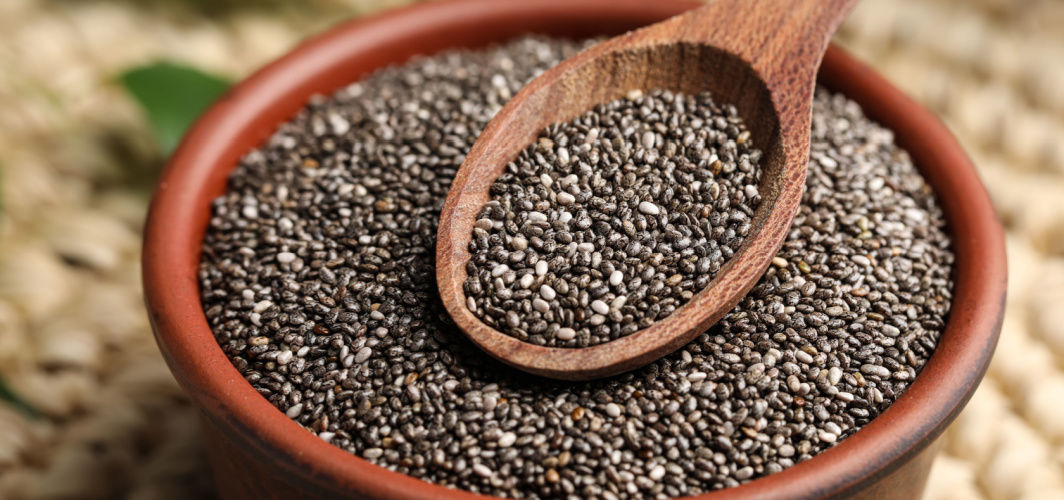General Health
Scientifically Proven Tips to Manage Chronic Inflammation
4 min read
By Apollo 24/7, Published on - 10 February 2022, Updated on - 18 October 2022
Share this article
1
4 likes

Inflammation is a biological mechanism that helps the body fight infections and heal itself. It occurs when the immune system detects harmful intruders such as pathogens (bacteria or viruses), and responds by facilitating the passage of inflammatory cells to the place where they were detected. Usually, the inflammatory response lasts for a few hours or a few days. However, if inflammatory cells stay in action for too long, it may lead to chronic inflammation.
Chronic inflammation can have negative effects on overall health. According to research, chronic inflammation can increase the risk of several life-threatening diseases. This article explores the damaging impact of chronic inflammation and ways to reduce the risks.
What is Chronic Inflammation?
Chronic inflammation is a slow, long-term inflammation that continues for months or years, even after the first trigger is gone. It occurs when the body continues sending inflammatory cells even when there is no outside danger. Chronic inflammation leaves the body in a constant state of alert.
Symptoms of Chronic Inflammation
Symptoms of chronic inflammation are generally subtle and hard to notice. In some cases, they can even take years to appear. Some of the common ones are:
- Fatigue
- Pain in the chest and abdomen
- Pain and stiffness in joints
- Depression or anxiety
- Recurring bouts of infections
- Diarrhea or constipation
- Weight loss or weight gain
Common Causes of Chronic Inflammation
In many cases, there is no clear or single underlying cause behind chronic inflammation. It can be caused by several factors, including:
- Autoimmune disorders such as lupus or psoriasis, wherein the immune system attacks healthy tissues in the body
- Long-term and low-level exposure to toxins, air pollution, or industrial chemicals
- Untreated acute inflammation caused by infection or injury
Lifestyle factors such as smoking, obesity, alcohol, and chronic stress can also increase the risk of chronic inflammation.
How Does Chronic Inflammation Affect the Body?
Chronic inflammation can cause severe damage to healthy cells in the body. Over time, this increases the risk of DNA damage and tissue scarring or death. These factors often culminate in several life-threatening diseases such as type 2 diabetes, asthma, cardiovascular disease, rheumatoid arthritis, cancer, and Alzheimer’s disease (AD).
How is Chronic Inflammation Diagnosed?
Interestingly, there are no diagnostic tests for chronic inflammation. In most cases, chronic inflammation is identified in conjunction with other conditions. However, there are certain blood tests for inflammatory biomarkers such as:
-
C-reactive Protein (CRP) Test
CRP test measures the levels of C-reactive protein, a type of protein produced by the liver. High levels of C-reactive protein indicate infections or inflammation in the body.
-
High-sensitivity C-reactive Protein (hs-CRP)
hs-CRP is a highly sensitive version of the standard CRP test, used to determine the risk of coronary artery disease and heart attack.
-
Erythrocyte Sedimentation Rate (ESR) Test
ESR test detects inflammation in the body by measuring how quickly red blood cells (erythrocytes) settle at the bottom of a test tube containing a blood sample.
Treatment for Chronic Inflammation
The treatment plan for chronic inflammation depends on several factors such as the severity of symptoms, age, overall health, etc. Some medications that may be prescribed to prevent or slow down chronic inflammation are:
- Over-the-counter nonsteroidal anti-inflammatory drugs (NSAIDs) such as aspirin, ibuprofen, or naproxen. These drugs do not treat inflammation. However, they provide short-term relief from painful symptoms of the condition.
- Corticosteroids—a type of steroid hormone available in the form of pills, injections, creams, and ointments. The medication reduces inflammation by suppressing the immune system. However, long-term use of corticosteroids can be harmful. A physician prescribes corticosteroids only after weighing the benefits and risks.
Some other medicines that are prescribed for chronic inflammation include disease-modifying antirheumatic drugs (such as azathioprine, leflunomide, and sulfasalazine) and biologic drugs (such as abatacept, etanercept, infliximab, and tocilizumab).
How to Prevent or Slow Down Chronic Inflammation Naturally?
Diet plays a key role in managing chronic inflammation. An anti-inflammatory diet involves foods with anti-inflammatory properties, such as oily fish (salmon, sardines, and mackerel), green leafy vegetables (such as spinach and kale), tomatoes, olive oil, nuts, and fruits (such as cherries, blueberries, and oranges). The diet also requires limiting the intake of foods associated with increased risk of inflammation such as refined carbs, fried foods, sugary beverages, processed meats, and highly refined oils.
Lifestyle changes that can help reduce or slow down chronic inflammation include:
- Maintaining a healthy weight
- Quitting smoking
- Exercising at least three to five times per week (150 minutes of moderate-intensity exercise every week)
- Limiting alcohol intake ( 2 drinks or less a day for men or 1 drink or less a day for women)
- Managing stress with healthy tools such as yoga, meditation, or tai-chi
Recommended reading: Health Tips To Manage Stress
Takeaway
Inflammation plays a key role in the body’s healing and infection-fighting process. However, long-term or chronic inflammation may cause more harm than good, and increase the risk of severe diseases. Certain changes to lifestyle and diet can help prevent or slow down the likelihood of chronic inflammation.
Have more questions about chronic inflammation? Talk to an expert physician within minutes.
General Health
Leave Comment
Recommended for you

General Health
Mederma Cream: Uses And Side Effects
Explore Mederma Cream's versatile uses and be informed about potential side effects. Make confident choices for your skincare regimen.

General Health
How Does Chemotherapy Work?
The rapidly dividing cancerous cells outnumber healthy ones at a devastating rate. Chemotherapy is one such treatment modality that stops this lethal multiplication, besides radiation and surgery. Read along to know the role of chemotherapy in cancer treatment.

General Health
All You Need To Know About Chia Seeds
Learn more about the health benefits of Chia Seeds along with their ancient uses, nutritional value, daily consumption recommendations, and considerations for safe integration into your diet.
Subscribe
Sign up for our free Health Library Daily Newsletter
Get doctor-approved health tips, news, and more.
Visual Stories

Science-backed Home Remedies for Burns and Blisters
Tap to continue exploring
Recommended for you

General Health
Mederma Cream: Uses And Side Effects
Explore Mederma Cream's versatile uses and be informed about potential side effects. Make confident choices for your skincare regimen.

General Health
How Does Chemotherapy Work?
The rapidly dividing cancerous cells outnumber healthy ones at a devastating rate. Chemotherapy is one such treatment modality that stops this lethal multiplication, besides radiation and surgery. Read along to know the role of chemotherapy in cancer treatment.

General Health
All You Need To Know About Chia Seeds
Learn more about the health benefits of Chia Seeds along with their ancient uses, nutritional value, daily consumption recommendations, and considerations for safe integration into your diet.